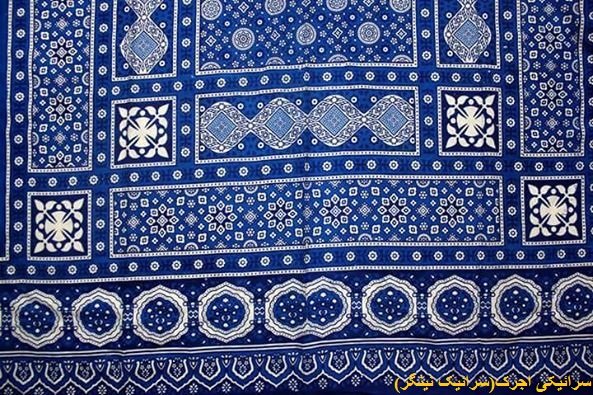Any nation’s formation is greatly aided by its students, and this pattern holds for Saraikistan’s battle inside Pakistan’s intricate political structure. A Saraiki province is not something that Wasib people can just get without a chic political struggle it’s just a bizarre dream of Wasib. The Indus, Jhelum, and Chenab Rivers encircle Saraikistan’s geography, which stretches from Sargodha to the Tharparkar. Saraikistan is renowned for its rich cultural history, beautiful linguistic diversity, folklore, collective human psychology, collective approaches to love, and stunning cultural biodiversity, all of which are based on cultural collectivism. Thall, Cholistan, and Thar are the three deserts that make up this region of Indus desert. The diversity of the desert’s cultural, linguistic, and traditional values is a result of historical collectivism. The Saraiki people have long called for their province, citing racial, economic, and cultural prejudice as their main justifications. They contend that the government does not provide them with an equitable share of resources and development and that their culture and language do not receive the respect they deserve.
The Saraiki people will have to traverse Pakistan’s convoluted political structure to establish their region. Before considering the creation of a distinct Saraiki province. But first, it’s important to understand the Saraiki Council’s contribution to the creation of Saraikistan before diving into the Saraikistan discussion. Thousands of Saraiki students linked with Saraiki councils are demanding Saraikistan on the same level but in a different pattern from Qauid-e-Azam to Karachi University. But the most crucial topic to debate is how history may teach us from many developed countries around the world and what part students played in creating a developed country. Student councils have played a significant part in influencing modern China, making our neighbor China, for instance, a stunning example of it. They actively encouraged nationalism and anti-imperialist sentiments among the student body, which fueled the early 20th-century Chinese nationalist movement.
Student councils were at the forefront of protests and rallies during the May Fourth Movement in 1919 over the Chinese government’s ineffective response to the Treaty of Versailles, which surrendered Shandong province to Japan. Furthermore, the Chinese played a key role in carrying out the party’s policies and plans after the Communist triumph in 1949, especially in the fields of education and cultural development.
If we talk about the factor which is causing hurdles in the Saraikistan struggle, we have two enemies in our Saraiki wasib: Pakistan’s complicated political system and the local or indigenous bourgeoisie, who are supporting the capitalistic system and causing instability in Saraiki wasib. If we want to remove these two hurdles, we should follow the Chinese pattern with Pakistani characteristics in mounting a strong resistance to the imperialist policies of the system. What part can the Saraiki student council play in Wasib’s prosperity in this disorganized system? Student councils in Saraiki may create a document on collectivism for Waisb; this would be a longer-term choice for the benefit of Waisb. The Waisb council must become familiar with the rationale-based politics of the Waisb. By taking part in decision-making processes, participating in civic events, and learning about the political system and government, Saraiki student councils can get practical political experience and support nation-building.
They can also engage in volunteer work and community service, which will aid them in better understanding the needs and issues of their neighborhood. Student councils can also gain knowledge about the political process and government by participating in conferences, workshops, and other educational activities including study groups, reading clubs, and cultural gatherings.
However, there may be several reasons student councils cannot engage in genuine politics and strengthen their country. Lack of assistance and resources from the school or community could be one factor. Lack of political education and preparation for student council members may be another factor. Student councils might not be fully representative of all students or have the power or authority to enact meaningful reforms.
Student councils may also experience political indifference or a lack of political motivation to participate in actual politics. Student councils can fail to recognize how their initiatives are relevant to the nation’s bigger political and social problems. For wasib councils, study circles—as illustrated by Chinese students—are the only option. Study groups have contributed significantly to the advancement of contemporary societies by fostering intellectual development among both individuals and groups. Study circles are intimate gatherings of people that meet regularly to discuss a specific topic, usually under the direction of a facilitator. They have been employed historically to encourage political and social change and self-education. Study circles were common among working-class people in Europe and North America in the 19th century to raise their social and economic position. They were also employed by political activists to advance social transformation and democratic principles.
Study groups were employed in the early 20th century to advance civic involvement and adult education in nations like Sweden and Denmark. Additionally, they were employed in underdeveloped nations to advance social, economic, and literacy development.
Study groups have been employed recently in a range of contexts, including classrooms, community centers, and online forums. They are frequently employed to encourage civic engagement and education among underprivileged populations and underrepresented groups like immigrants. Study circles have an odd role to play in the decolonization of indigenous societies, and Saraikistan’s battle should follow a similar pattern. Once Maulana Sindhi said, “Although it also calls for cold-hearted thought and contemplation, passion, and sacrifice are not always a guarantee of reaching the goal.” This voyage will differ from the typical journey, which is focused on the psychological fight of Saraikism, and this journey should adhere to the rational struggle of Wasib.
